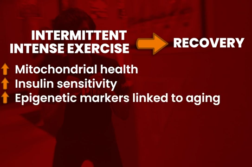CHAPEL HILL, N.C. (Ivanhoe Newswire) – Almost 90,000 people will be told they have lymphoma this year. It’s a cancer of the immune system. Specifically, it’s a cancer that targets your white blood cells. Many patients can be cured with a combo of chemo and immunotherapy. But there are some people that this doesn’t help. Now, a new therapy is giving them another chance – possibly their last chance – of being cured. Car T-Cell
John Bell is a cigar aficionado, valuing not just the flavor but the connections a stogie fosters.
“I once heard somebody describe cigars as the great cementer of friendship, and I think that’s true,” John tells Ivanhoe.
But after 24 years, his part-time hobby working at the cigar shop was threatened.
John recalls, “I was noticing some swelling in my cervical lymph nodes on the left side, right in here.”
John was diagnosed with large B-cell lymphoma — an aggressive cancer of the lymphatic system and underwent six months of chemo.
“I was pretty devastated when we got to the end and found out it wasn’t completely successful,” John expresses.
Clinical Director of the Cellular Therapy Program at UNC Health, Natalie S. Grover, MD believed CAR T-Cell therapy would be his best option.
“It’s using a patient’s own immune cells to specifically target them to a marker on the lymphoma cells. Their T-cells are now specifically targeted to attack their cancer cells,” Dr. Grover explains.
Side effects were harsh – John’s temperature pushed 106. His blood pressure dropped. He spent 18 days in the hospital. But a month later, things got better.
“The hope is that he’s cured with lymphoma,” Dr. Grover says.
Now, John is back in the cigar shop, savoring each and every moment.
“I feel good. I’m completely asymptomatic and it’s almost like it never happened,” John says with relief.
CAR T-Cell therapy is still facing scrutiny. Although the FDA is instructing manufacturers of these therapies to add its highest safety related warning to the treatment, the agency says the overall benefits outweigh the potential risks.
Contributors to this news report include: Marsha Lewis, Producer; Matt Goldschmidt, Videographer; Roque Correa, Editor.
To receive a free weekly e-mail on medical breakthroughs from Ivanhoe, sign up at: http://www.ivanhoe.com/ftk
Source:
https://www.lls.org/facts-and-statistics/facts-and-statistics-overview
MEDICAL BREAKTHROUGHS
RESEARCH SUMMARY
TITLE: LAST CHANCE: HOW CAR T-CELL THERAPY SAVED JOHN
REPORT: MB #5392
BACKGROUND: Almost 90,000 people in the United States are expected to be diagnosed with lymphoma. It’s a type of cancer that begins in infection-fighting cells of the immune system, called lymphocytes. These cells are found in different parts of the body such as the lymph nodes, spleen, thymus, bone marrow, and other locations. When you have lymphoma, lymphocytes change and start growing uncontrollably. There are two main types of lymphoma one is called Non-Hodgkin, most people with lymphoma have this type and the other one is Hodgkin. Both involve different types of lymphocyte cells. Every type of lymphoma grows at a different rate and responds differently to treatment. Lymphoma is different from leukemia. Each of these cancers starts in a different type of cell.
(Source: https://www.webmd.com/cancer/lymphoma/lymphoma-cancer)
DIAGNOSING: To diagnose lymphoma, doctors use various tests and procedures. Such as a physical exam and check for swollen lymph nodes in your neck, underarm, and groin, as well as a swollen spleen or liver. Blood tests can also give clues about the number of cells in your blood. Depending on your situation, your doctor may recommend additional tests to confirm whether or not you have lymphoma. It’s important to know the exact type of lymphoma you have as it helps develop an effective treatment plan. To ensure an accurate diagnosis, it’s a good idea to have a biopsy sample reviewed by an expert pathologist. You can also consider getting a second opinion from a specialist to confirm your diagnosis.
(Source: https://www.mayoclinic.org/diseases-conditions/lymphoma/diagnosis-treatment/drc-20352642)
NEW TREATMENT: CAR-T therapy has proven to be successful in treating blood cancers such as leukemia, lymphoma, and myeloma. Approximately 40% of patients with aggressive forms of these diseases have experienced remission. The clinical trials at the University of North Carolina’s facility include patients with both blood cancers and solid tumor cancers such as ovarian, lung, and glioblastoma. CAR-T therapy involves combining genetically engineered antibodies and T-cells to create a super-cell that fights cancer. The antibodies are responsible for removing anything that is not recognized by the immune system, such as bacteria and viruses, while T-cells are white blood cells that eliminate cancer themselves. The Carolina facility supports cell therapies created in campus labs by scaling up the production to millions of cells, which can then be infused in patients at UNC Hospitals. Although it is difficult to track disease reduction in phase I clinical trials, which focus on safety, about 60% of patients who took part in the facility’s clinical trial for Hodgkin’s lymphoma are now in remission.
(Source: https://www.unc.edu/discover/husband-and-wife-oversee-carolinas-car-t-therapy/)
FOR MORE INFORMATION ON THIS REPORT, PLEASE CONTACT:
Kendall Daniels
Kendall.daniels@unchealth.unc.edu
If this story or any other Ivanhoe story has impacted your life or prompted you or someone you know to seek or change treatments, please let us know by contacting Marjorie Bekaert Thomas at mthomas@ivanhoe.com




